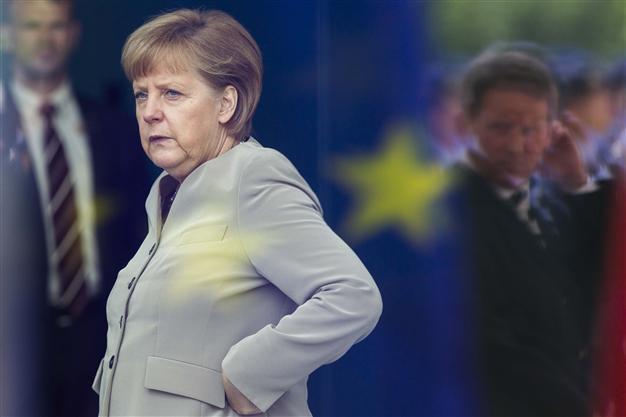Don't overestimate Germany's ability to save euro: Merkel
BERLIN - Agence France-Presse

AP Photo
German Chancellor Angela
Merkel said Thursday that the eurozone crisis would dominate next week's G20 summit but warned world leaders that her powers to act were limited.
In a speech to lawmakers ahead of the meeting of G20 leaders in Los Cabos, Mexico on June 18-19, Merkel warned Europe could not take the easy way out with solutions based on "mediocrity" that failed to address core problems.
"All those looking to
Germany again in these days in Los Cabos, who are expecting a drumroll and the answer... I say to them Germany is strong, Germany is an engine of economic growth and a stability anchor in Europe," Merkel said.
"But Germany's powers are not unlimited," she said, cautioning against "overestimating" her country's role as the sole crisis-fighter.
Merkel acknowledged that Germany found itself at centre stage as world leaders fret about the incalculable impact of the eurozone debt crisis on the global economy.
"The debt crisis will be the main issue at the summit," Merkel said.
"Our country will be the centre of attention -- it's a fact, all eyes are on Germany because we are the biggest European economy and a major exporter." But Europe would only find a way out of the crisis with a strong "political union" that mandated greater fiscal coordination and oversight to put member countries on a "solid foundation", she said.
"Germany is investing its strength and its power, not only for the benefit of the people in Germany but also in the interest of European integration and in the interest of the global economy," she said to applause.
But she said all those clamouring for Germany to "pour billions into eurobonds, stability funds, European bank deposit guarantee funds" in a bid to calm the markets were looking for a quick fix to the crisis that was unsustainable.
And she said that many of the countries crying out for German action, notably the United States, needed to turn their backs on deficit-spending and start implementing the kinds of structural reforms Berlin has put in place.
"Financing growth with new borrowing must stop," she said.
A German government source had said on Tuesday that Berlin would not bow to pressure to boost growth with more borrowing and would "maintain that line" at the G20 summit.
"We do not need growth bought on credit, and the Americans understand that," the senior official, speaking on condition of anonymity, said. "We will maintain that line." The source said responsibility for the deterioration of the global economy "rests on several shoulders" and should not be "reduced to the eurozone's problems," noting the role of the United States, China and some G20 emerging economies.
Germany has come under intense pressure, notably from US President Barack Obama, to do more to put an end to the eurozone crisis as it is seen as a threat to the fragile US recovery and the global economy as a whole.
However Berlin has resisted calls for new European stimulus programmes to promote economic growth, saying that fiscal discipline is the only way to restore market confidence in the eurozone.
EU, European Union,
